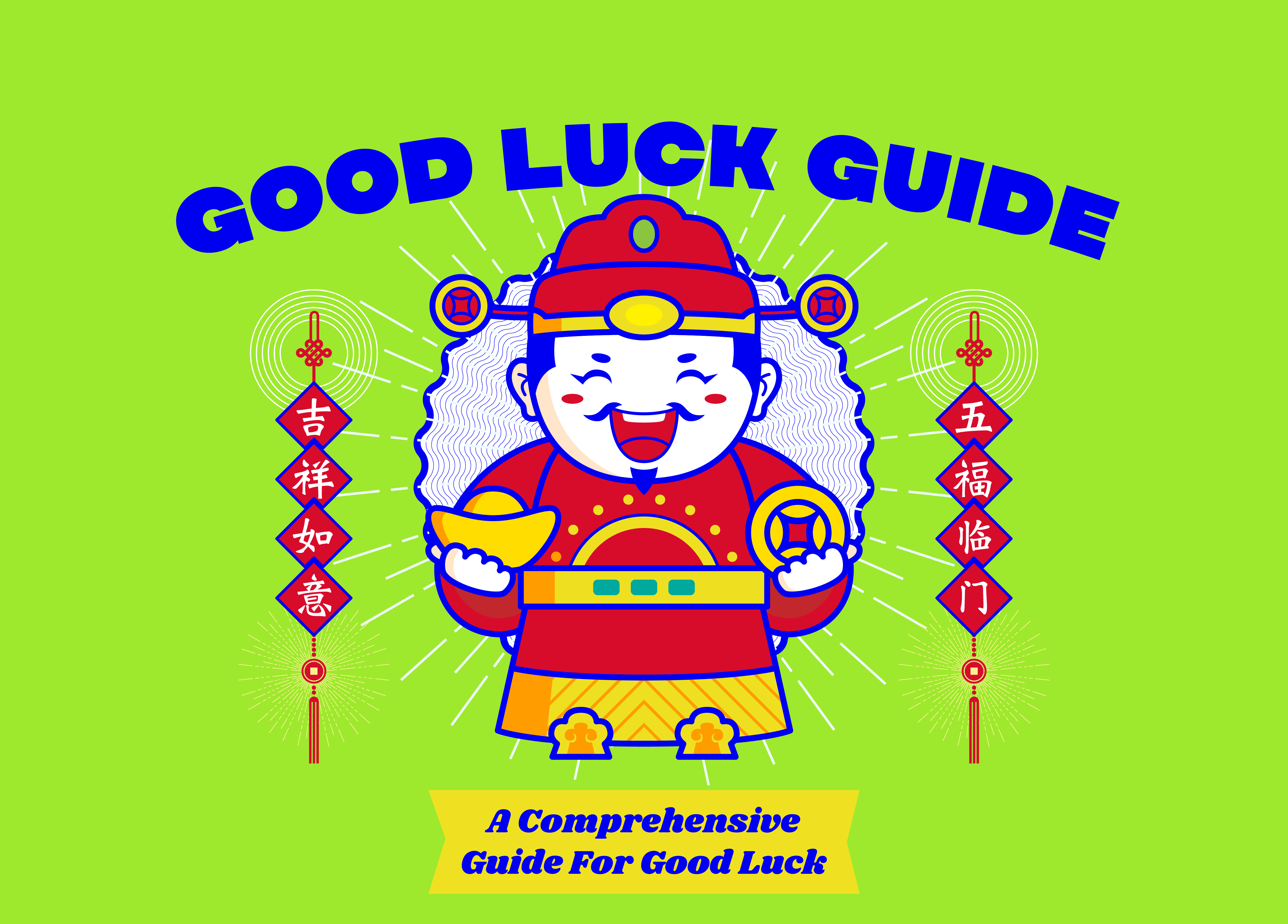
Chinese New Year Event
List of dos and don’ts for Chinese New Year and remember to have your yusheng also
Chinese New Year is often associated with luck, wealth, and fortune. Growing up, parents or grandparents might have put up a long list of things that we’re supposed to do and avoid.
You might have forgotten them by now! Have a read of this list of dos and don’ts for Chinese New Year compiled over time to learn more!
Chinese New Year Event
Do's & Don'ts
of Chinese New Year
Do These
on New Year's Eve
Staying Up
(守岁 shǒu suì)
Children are encouraged to stay up past midnight as it's believed the longer they stay awake, the longer their parents' lives will be. The children get an red packets (angbaos in Hokkien) in return before going to bed.
Decorate
the house
Use festive decorations such as spring festival couplets, red paper cuttings with the word “福”, and pussy willows.
Pro tip: Place the word fu (福) upside down, as it signifies 福倒, which sounds the same as the arrival of good luck (福到) in Chinese!
Purchase
festive goodies
Niangao (round sweetcakes), waxed duck, waxed pork, and mandarin oranges should be on your shopping list.
Purchase
new clothes
and shoes
Preferably red in colour. Black is a no-no.

Spring cleaning
To get rid of the bad and old, and to usher in the new year. It's believed that this will drive evil spirits out.
Settle all debts
It's considered bad luck to start a new year with unpaid debts as it signifies a bad year for wealth. So, collect your debts and pay yours too!
Filling rice jar
to the brim
Rice jars are believed to reflect a family's living standards. Hence, filling it up to the brim is believed to attract wealth.
Taboos
on New Year's Day
Eating porridge
Porridge is taboo on New Year's Day as it signifies poverty.
Washing of
hair and clothes
The first 2 days of Chinese New Year is the birthday of the Water God and it's said that washing hair or clothes during these days will wash away the whole year's luck.
Cutting and
doing needlework
It's said to "cut away" your path to wealth and give rise to unnecessary quarrels with others.
Saying
unlucky words
It supposedly brings about misfortune.
Sweeping
of the floor
It might sweep away good luck.
Waking
of a sleeping
person
The one who is woken up might have to work all year.
Taking
afternoon naps
Believed that the person will become lazy all year round.
Do's and Don'ts
On All 15 Days of Chinese New Year
Visit the oldest
members of your
extended family
to honour them

Married folks give gifts of money to children and elders in angbao
The colour red is thought to bring good luck and happiness for the year ahead.


No breaking of dishes/mirrors /vases
It symbolises financial loss. If you accidentally break something, the fragments should be collected and kept in a red cloth, while exclaiming “岁岁平安” (sui sui ping an), which means to be safe every year, before trashing it on the fifth day of Chinese New Year. The Chinese word for year has the same pronunciation as “碎”, which means “break”.

No crying
It's believed that the cry of children is a foreboding of disease and misfortune, which may bring bad luck to the family. Stay away from those sad movies and songs!

No scissors
or knives
They represent an omen of quarrels with others and cutting of wealth.


No lending or
borrowing money
It might lead to debt. Lending money is an omen for financial loss, and borrowing money is considered taboo as well.

No black or
white clothes
Black and white is often worn for funerals, hence, they are seen as unlucky colours.

Avoid odd
amounts of
money in
red packets
Odd numbers are considered unlucky.

No hospital visits
and taking of
medicine
It's believed to bring about illness all year round. That said, you should still take your medicine or see a doctor if you're ill.

No going out on
the third day of
Chinese New Year
The third day is also known as “Loyal Dog Day”, it's considered an unlucky day and best spent indoors.

Reference
國立臺灣師範大學 - 岁时节俗 SCMP - 9 Chinese New Year taboos to avoid SCMP - Chinese New Year: The different days of the new year and what each of them mean Way Fengshui - Chinese New Year Dos and Don’ts China Daily - 红包在中国文化中的意义 陳雅芳 - 華人社會與文化 新加坡宗乡会馆联合总会 - 《华人礼俗节日手册》*These are customs that originated many years ago, and may or may not be followed by people today.



